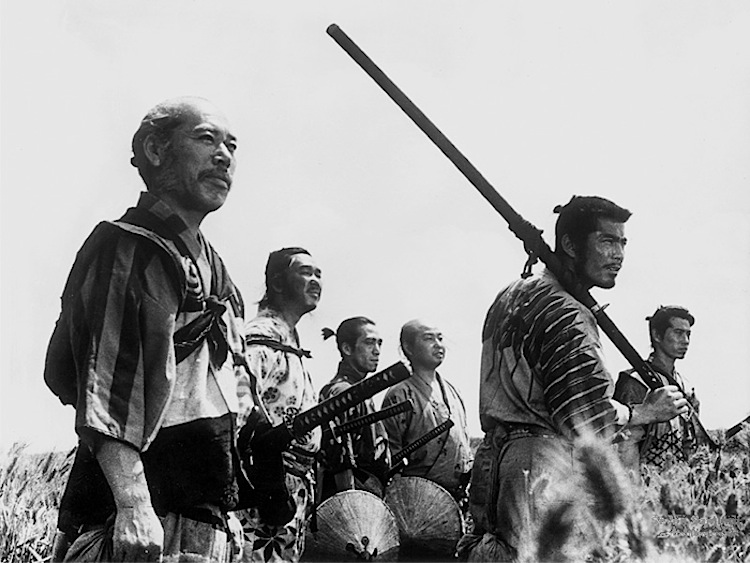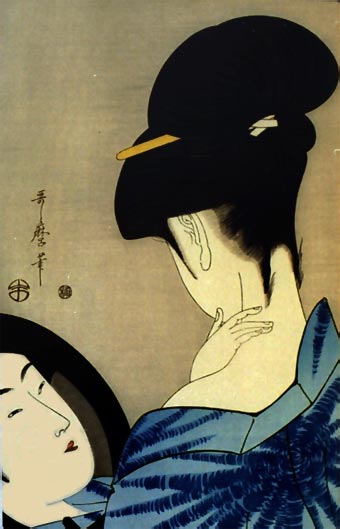
By Govindini Murty. As the Japanese reel from the triple blow of a massive earthquake, a terrible tsunami, and now a nuclear crisis, I wanted to ask Libertas readers to do anything they can to support Japanese relief efforts by donating here to the Red Cross.
Japan has one of the world’s great cultures – and more important than that, they are our friends and allies and they deserve our support. Jason and I had the opportunity to visit Japan some years ago, and we came away with a tremendous respect for the beauty and sophistication of Japanese culture – and for the courtesy, intelligence, and resiliency of the Japanese people. Whether we were walking down the Ginza in Tokyo, or hiking through the Japanese Alps, or visiting temples in Kyoto and Nara, we were touched on every occasion by the hospitality of the Japanese people – and by their extraordinary commitment to the aesthetic sense.

I remember on one occasion walking down the Ginza with Jason, taking in its modernist labyrinth of shiny skyscrapers and flashing electric signs. (Jason and I kept commenting to each other that we felt like we were in a scene from Blade Runner.) We stopped in one store that had a mysterious, old-fashioned air to it that set it apart from the rest of the hypermodern street. The store turned out to sell incense and other supplies for Buddhist temples. When we showed an interest in their wares, the owners kindly invited us to come upstairs and have a tour of their private museum. The most magical, hidden world was unveiled before our eyes. We were taken into a room paneled in black lacquer, and around its walls was arranged the most exquisite collection of golden, miniature Buddhist shrines. In the middle of the room was the most remarkable sight of all: a tea pavilion completely covered in gold leaf, a copy of the famous golden tea pavilion built for the medieval warlord Toyotomi Hideyoshi.
On another occasion, family friends invited us to dinner at the fabled Ichiriki teahouse in the Gion district of Kyoto. Several of Kyoto’s most famous and charming geisha entertained us with traditional Japanese songs, music, and dance. (Geisha are now important cultural ambassadors for the Japanese arts.) When our hosts heard that we were interested in Japanese history, they asked the mistress of Ichiriki to bring out some of the teahouse’s famous samurai artifacts. She brought out an ancient samurai helmet (we have some amusing photos of Jason and his father trying it on) and told us fascinating stories from the teahouse’s three hundred-year history – including those recounting Ichiriki’s role in one of Japan’s most famous samurai stories, Chushingura – The Tale of the 47 Loyal Ronin.
On yet another occasion, we had the opportunity to visit Nara, the ancient capital of Japan during the 8th century A.D.. An elderly volunteer docent spent several hours showing us around the temples and monuments of Nara, of which the most extraordinary is the Great Buddha of Todai-ji. We were touched by the tremendous pride this gentleman took in his heritage, and by the care and patience he took to explain it to us. I remember one particularly graceful wooden pagoda that this gentleman pointed out to us – the pagoda of Yakushi-ji – that had survived intact for over a millennia. Gazing up at it beatifically, he described its elegant lines and symmetry to us as “frozen music.”
The love that the Japanese people have for their cultural heritage and the ties that they feel to their beautiful land are sources of strength that will help them to recover from this latest disaster. But for all of their elegance and reserve, the Japanese are a sensitive people who, already shaken by a troubled economy and by domestic political crises in recent years, have been truly rocked by this latest tragedy. Japan needs all the friendship and support we can give it right now. Continue reading A Celebration of Japanese Culture in the Midst of Its Current Crisis